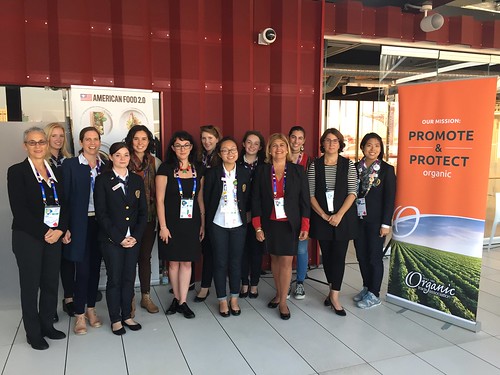
Across the country and around the world, more people are looking for organic options at their local markets. Thanks to the remarkable growth in the number of USDA certified organic operations, which now number more than 27,800 worldwide, consumers have more choices than ever. My agency, USDA’s Agricultural Marketing Service (AMS), includes the National Organic Program, which plays a critical role in advancing the organic sector by developing clear standards for use of the USDA Organic seal, enforcing a level playing field, and expanding trade opportunities to create new markets for U.S. organic businesses.
Just last week, I had the privilege of highlighting the success of American organic agriculture on the world stage at the Expo Milan 2015 USA Pavilion, where the theme was “American Food 2.0: United to Feed the Planet.” During the “Women leading the Organic Way” panel discussion, I shared USDA’s vision for organic agriculture and all the ways in which USDA is supporting organic farmers and businesses. I also emphasized the important role of women in agriculture – women farm 301.4 million acres in the U.S., and a relatively high proportion of organic farms are operated by women.
I was joined by other women leaders in organic production, including Laura Batcha, Executive Director & CEO, Organic Trade Association; Ariane Lotti, Farmer & Agricultural Entrepreneur, Tenuta San Carlo; and Liz Neumark, Founder & CEO, Great Performances & Katchkie Farm. We all agreed that the future of organic agriculture is bright and offers exciting economic opportunities in the U.S. and around the world.
Since the beginning of the Obama Administration, the United States has signed five organic equivalency arrangements—with Canada, the European Union, Japan, Korea, and Switzerland—that have streamlined access to international organic markets valued at over $35 billion. When combined with the $39 billion U.S. organic market, these arrangements have effectively doubled organic market access for U.S. organic farmers and businesses.
USDA also has many new and expanded efforts to connect organic farmers and businesses with the resources they need to ensure the continued growth of the organic sector domestically and abroad. Our one-stop-shop for all of our programs and opportunities for the organic community includes information about everything from research and education to market information and technical assistance. We’re committed to providing organic farmers and producers – including women – with the tools they need to succeed in the global marketplace, from Milan to Tokyo and beyond.


